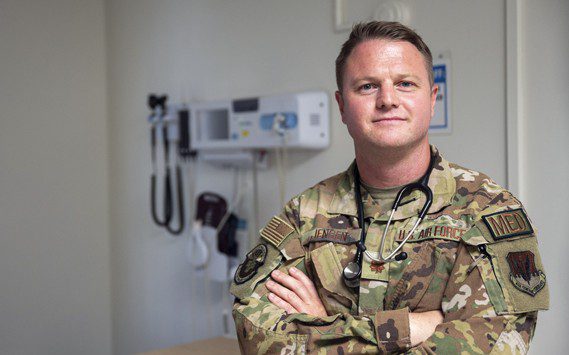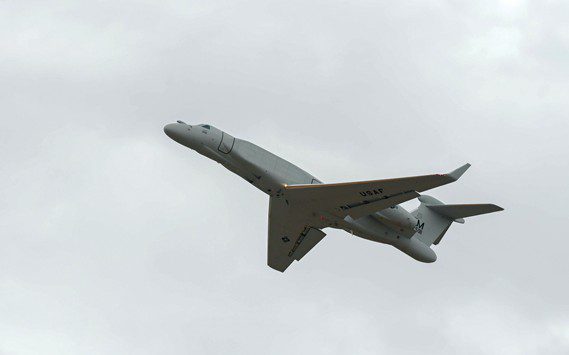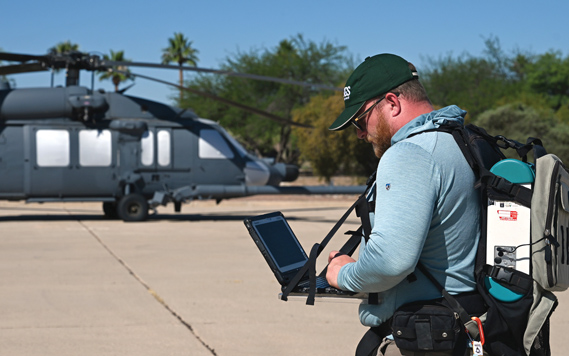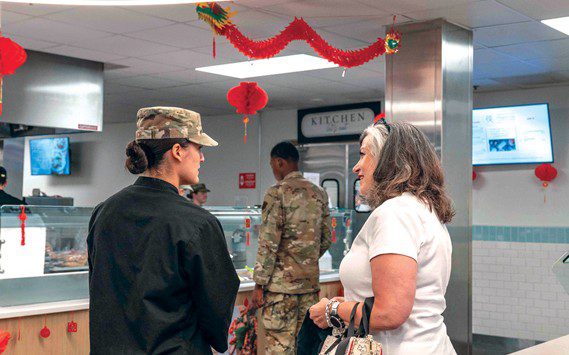LUKE AIR FORCE BASE, ARIZONA — For those who have donned a military service uniform, most have heard the myths and urban legends that surround random drug testing, with the biggest question being “Is it really random?”
With facts received from the 56th Fighter Wing Drug Demand Reduction, this article presents the truth about the process that begins with a notification to “sign paperwork.” Hopefully, it will dispel a few myths, some going back to the dawning of urinalysis.
Myth: “They” wait until after I have used the restroom to notify me that I have to report for urinalysis.
Fact: First, there is no “they.” Personnel at the 56th FW DDR notify each squadron’s trusted agent, who is appointed by the squadron commander, to issue notifications to the individuals selected. Individuals selected will receive notice no earlier than one hour prior to the scheduled starting collection time and no later than one hour prior to the scheduled end of collection time. The individual is informed that they have to report and sign paperwork. According to Air Force Instruction 90-507-, notification must occur in writing, which explains the phone call about signing paperwork.
Myth: I always have to test when I return from leave.
Fact: “When the drug testing program selects individuals and an Airman who is on leave is chosen, the DDR program manager is notified by the trusted agent of the Airman’s leave status and return date,” said Jennifer Dean, 56th Fighter Wing DDR program manager. “When the next testing cycle begins that Airman is then notified to report for testing. Just because a person is on leave does not excuse them from being tested which may make some people feel like they are targeted after returning from leave.”
Myth: One batch of urine collected from a number of donors is put in a giant cylinder, and one sample is taken. If it tests positive, those individuals are retested.
Fact: All urine samples are collected and put in individual bottles, labeled with the Airman’s identification number, and shipped to Lackland Air Force Base DDR testing center. Here, boxes are opened and each individual bottle is removed and placed in a machine which samples each specimen.
Myth: Do not eat anything with poppy seeds.
Fact: The poppy is an oilseed obtained from the opium poppy. Although the drug opium is produced by “milking” latex from the unripe fruits rather than from the seeds, all parts of the plant can contain or carry opium alkaloids, especially morphine and codeine. This means that eating foods that contain poppy seeds can result in a false positive for opiates in a drug test. However, the results provided will not be the same for someone who abuses opiates. The Air Force has set levels that a sample has to meet to be deemed positive for drug use.
“If a test comes back as positive, further testing is done to rule out a false positive,” Dean said. “That is why poppy seeds can create a false positive, but it is almost impossible to have a false positive for eating poppy seeds, so please eat as much as you want.”
Myth: Selection is not random. I get called for testing back-to-back.
Fact: The DTP system is given a random cutoff number generated by taking the desired monthly testing percentage and dividing it by the number of days in a month that testing will occur. A random number between 0.00 and 1.0 is generated for all eligible roster members. The system then compares the generated number to the cutoff and selects the roster member if the generated number is equal to or less than the cutoff number. No social security numbers, or names are used to determine who is selected for testing.
“Some people question the randomness of the selection process,” said Tech. Sgt. Victor Gruber, 56th FW DDR drug testing administrator manager. “They think ‘oh they must have known I was on leave or someone is out to get me.’ That is absolutely false. The system is as random as a computer generated system can be. It is not connected to any server or system. The names are uploaded to the system and that is the only way we know who is to be tested.”
With as many myths that accompany the facts about urinalysis, the myths always seem to prevail. The DDR program is there to deter drug abuse, so if in doubt visit the center to get the facts. The truth about the selection procedure is that it is the result of true randomness. Some people are selected often while others are seldom chosen.











